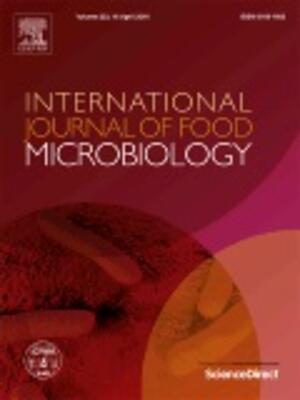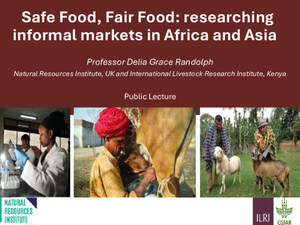
Assessment of food safety knowledge, attitudes, and practices among meat handlers in Bishoftu City, Ethiopia
Abstract
Meat handlers play a critical role in food safety by preventing contamination of food for human consumption. A cross-sectional survey was undertaken with 391 meat handlers working in abattoirs and retail meat stores in Bishoftu, Ethiopia, to investigate their food safety knowledge, attitudes, and practices (KAP). Data were collected in interviews using a semistructured questionnaire adapted from previous research. An overall score for each topic area was calculated based on the responses to individual questions. Logistic regression was used to assess the independent associations between sociodemographic characteristics and good knowledge, attitudes, and practices. Almost all meat handlers were males (97.2%), and more than half (51.9%) had primary-level education. Most (72.4%) meat handlers had a good knowledge level with a median score of 16 out of 21 (interquartile range [IQR] = 6). Similarly, most (94.6%) meat handlers had a positive attitude toward food safety with a median score 18 out of 20 (IQR = 1). However, most (83.7%) meat handlers had poor food safety practices with median score of 11 out of 20 (IQR = 3). In multivariable models, good knowledge was significantly (P < 0.05) associated with male gender and older age; positive attitudes were associated with lower educational attainment and good knowledge; and good practices were associated with working in an abattoir and having received training on food safety. Regular hands-on training and enforcement of general and personal hygiene is recommended.
Citation
Abunna, F., Kaba, M., Mor, S. and Megersa, B. 2023. Assessment of food safety knowledge, attitudes, and practices among meat handlers in Bishoftu City, Ethiopia. American Journal of Tropical Medicine and Hygiene 108(1): 200–205.









